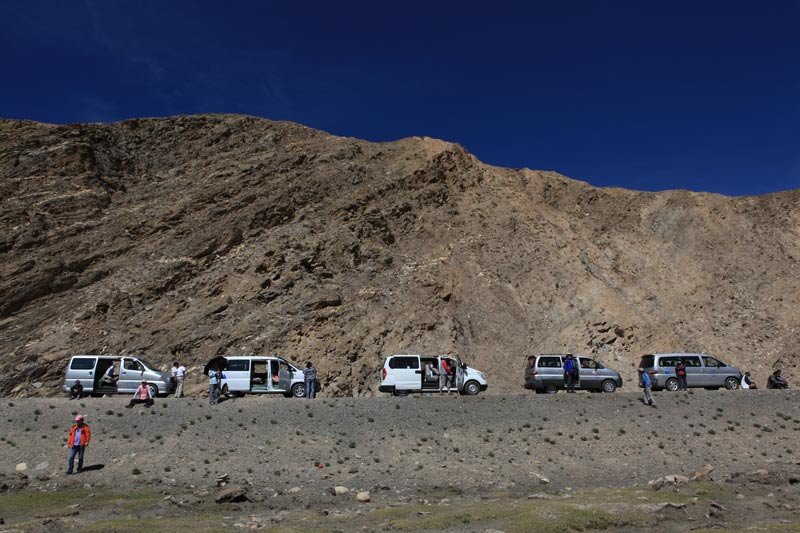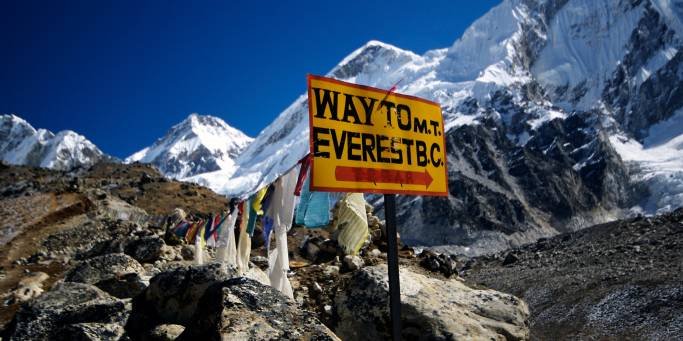Budgeting The Climb: Costs From Lhasa To Everest Base Camp

Executive Summary

Climbing Mount Everest is a task that requires meticulous preparation, endurance, and substantial financial resources. Travelers must account for several costs, from permits and equipment to transportation and food. This detailed guide provides insights into the key expenses climbers encounter during their journey from Lhasa to Everest Base Camp, empowering them to plan and budget effectively.

Introduction
Mount Everest, the world’s most captivating peak, beckons adventurous souls with its awe-inspiring grandeur. Embarking on this challenging expedition entails careful financial preparation, as climbers navigate various expenses throughout their journey from Lhasa to Everest Base Camp. This guide meticulously examines the pivotal cost components, helping adventurers budget wisely and embark on their Himalayan odyssey with confidence.
Major Trip Expenses
Permits and Fees
Embarking on an Everest expedition demands compliance with numerous regulatory requirements, necessitating the acquisition of various permits and licenses. These include:
Climbing Permit: Essential for scaling the mighty Everest, this permit authorizes climbers to attempt the summit. Fees vary according to the route and group size, ranging from $11,000 to $25,000.
National Park Fee: Accessing the Sagarmatha National Park, the gateway to Everest, incurs a park entrance fee. This contribution supports conservation efforts in the ecologically fragile region. Expect to pay around $30 for a 15-day pass.
Garbage Deposit: Everest’s pristine beauty must be preserved, and climbers must deposit a refundable garbage fee of $4,000. This deposit incentivizes responsible waste management practices on the mountain.
Peak Season Surcharge: Climbing during the ideal weather window (May-June) attracts a peak season surcharge of $250 to $500. Climbers attempting the summit during this period should factor this additional cost into their budget.
Equipment and Gear
Conquering Everest demands specialized gear and equipment capable of withstanding extreme conditions. Mountaineers must invest in:
Climbing Equipment: Essential climbing gear, including ropes, ice axes, crampons, and helmets, can set you back approximately $2,000 to $3,000.
Technical Clothing: Layering is crucial for regulating body temperature in unpredictable mountain weather. Expect to spend $1,000 to $2,000 on high-quality technical clothing.
Camping Gear: Climbers must be prepared to camp at various altitudes. Tents, sleeping bags, and cooking equipment can cost anywhere from $500 to $1,000.
Personal Items: Additional personal items like sunglasses, sunscreen, toiletries, and first aid kits can add up to $200 to $300.
Miscellaneous Gear: This category includes items like batteries, trekking poles, and communication devices, which may collectively cost around $200 to $300.
Guides and Porters
Climbing Everest is an endeavor best undertaken with the assistance of experienced guides and porters:
Guides: Seasoned guides provide invaluable expertise, ensuring climbers’ safety and maximizing their chances of success on the mountain. Guide fees typically range from $8,000 to $12,000 per person.
Porters: Porters carry climbers’ gear and supplies, enabling them to focus on the ascent. Porters may charge around $2,000 to $3,000 for the trek to Base Camp.
Transportation and Accommodation
Reaching Everest Base Camp involves various modes of transportation and accommodation:
Flights: Airfare from Kathmandu to Lhasa, the starting point for the Everest trek, typically costs between $500 and $1,000.
Land Transportation: Overland transportation from Lhasa to Base Camp involves jeeps or trucks. Expect to pay around $300 to $500 for this segment.
Accommodation: Throughout the trek, climbers will stay in guesthouses or teahouses along the route. Accommodation costs average $15 to $25 per night.
Miscellaneous Expenses
Additional expenses may arise during the expedition:
Food and Drinks: Climbers can expect to spend approximately $10 to $15 per day on food and drinks.
Communication: Staying connected with the outside world requires purchasing local SIM cards or satellite phones. These can cost around $100 to $200.
Tips: It is customary to tip guides, porters, and other service providers. Budget around $200 to $300 for tips.
Contingency Fund: Unforeseen circumstances can arise. Setting aside a contingency fund of around $1,000 to $2,000 is prudent.
Conclusion
Climbing Mount Everest is a formidable challenge, demanding meticulous planning and substantial financial investment. From permits and gear to guides and transportation, climbers must carefully budget for each expense category to ensure a safe and successful journey. By understanding the key cost components involved in the Lhasa to Everest Base Camp trek, climbers can make informed decisions, allocate resources effectively, and embark on their Himalayan expedition with confidence.
Keyword Phrase Tags
- Everest Expedition Costs
- Lhasa to Everest Base Camp Budget
- Mount Everest Climbing Expenses
- Everest Permits and Fees
- Everest Gear and Equipment